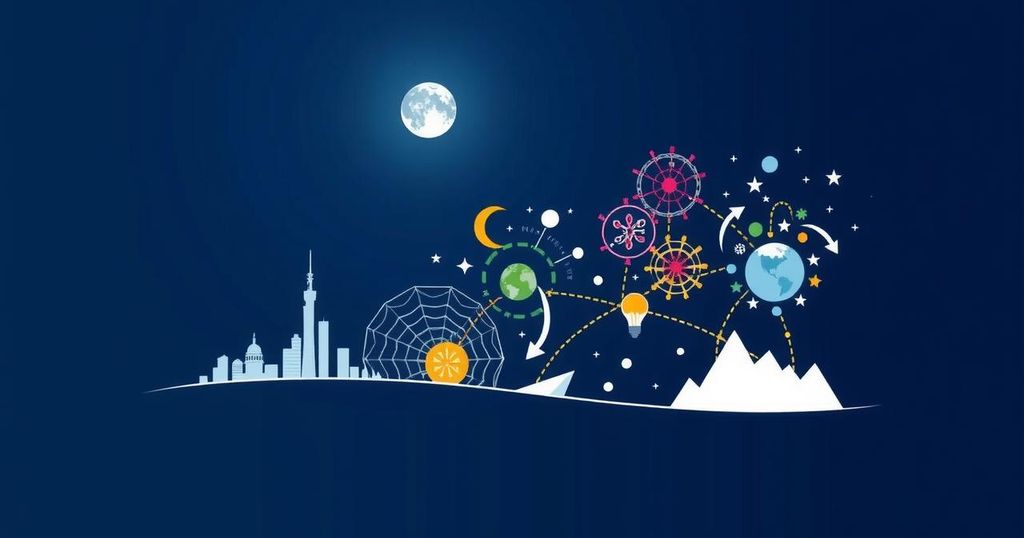Fourteen UConn students attended COP 29 in Baku, Azerbaijan, discussing climate solutions. They prepared through connections with previous attendees, faced restrictions on protests, and navigated challenges between the conference’s Blue and Green Zones. Insights shared by international speakers emphasized the intersection of climate change and socio-political issues, with UConn students planning to share their experiences at a campus event.
Fourteen University of Connecticut students, sponsored by the Office of Sustainability, participated in the United Nations 29th Conference of the Parties on Climate Change, held in November in Baku, Azerbaijan. UConn has a longstanding tradition of sending delegates to this conference, initiated with COP 21 in 2015. Many students attended for the first time and prepared by engaging with previous attendees to better understand the surrounding discourse.
Dylan Steer, a fourth-year student majoring in Environmental Studies and Political Science, expressed his enthusiasm for finally attending the conference after prior unsuccessful applications. He sought insights from past participants to grasp the atmosphere of the conference and the dynamics of international climate negotiations. Similarly, Kamala Chuss, a fourth-year Marine Sciences major, emphasized the importance of her educational journey in preparing for the event.
Alan Cavagnaro, also a fourth-year student, highlighted the scrutiny faced by attendees with dissenting views, revealing that registrants received government communications requiring them to register protests in advance, underscoring the political sensitivity surrounding the event. The conference spanned two weeks, with the first week reserved for official parties, while UConn students arrived during intensified negotiations in the second week.
The conference was divided into two main areas: the Blue Zone with its negotiations and discussions, and the Green Zone showcasing sustainability efforts. Steer described a sense of disappointment in the Green Zone, where companies attempted to present ‘greenwashed’ images of themselves amidst ongoing environmental degradation. He pointed specifically to SOCAR, the Azerbaijani National Petroleum Company, and critiqued the misleading nature of its sustainability claims.
Conversely, Chuss found value in the Blue Zone, particularly noting her experiences in the Ocean Pavilion and learning about international environmental negotiations. Cavagnaro recalled a poignant session featuring the Attorney General of Fiji, who underscored the challenges faced by developing nations in accessing funding for climate initiatives. He reiterated that without substantial support, the objectives of agreements such as the Paris Climate Accord are difficult to achieve.
Reflecting on their experiences, attendees praised the People’s Plenary, which featured speakers from regions affected by conflict and climate crises. Steer remarked on the authenticity of discussions conducted there, highlighting the insights shared by speakers from Palestine, Lebanon, Sudan, and Ukraine, illuminating the complex relationship between climate change and global conflict.
The UConn climate fellows are set to share further insights from their time at COP 29 during the Climate Change Cafe on December 4, 2023, from 4:00 PM to 6:00 PM in the Student Union Ballroom.
The article addresses the participation of UConn students in the COP 29 Climate Change Conference in Baku, Azerbaijan, emphasizing the university’s history in contributing to global climate discussions since COP 21. It provides insights into the unique challenges and experiences of students at this year’s conference, including navigating governmental restrictions on protests and the contrasting atmospheres between the Blue and Green Zones. The students’ diverse academic backgrounds highlight their preparation and engagement with international climate discourse, enhancing the understanding of youth involvement in climate advocacy.
The UConn students’ participation in COP 29 reflects a broader commitment to environmental advocacy and global discourse on climate change. By navigating the complexities of international negotiations and acknowledging the challenges faced by vulnerable nations, these young advocates demonstrate a blend of hope and realism regarding climate solutions. Their experiences underscore the importance of continuous dialogue and action in addressing the pressing issue of climate change, culminating in a community discussion to further explore these insights.
Original Source: dailycampus.com






